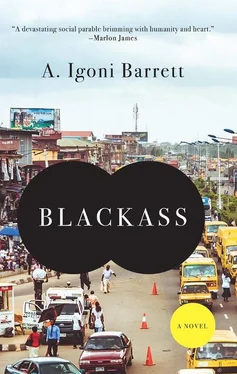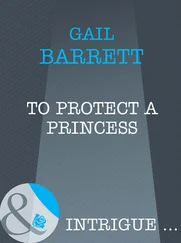If Furo were only able to sit across from his family, he would ask forgiveness for not opening the door to his mother. He would tell his parents to not worry too much about him, that things were looking up, that he’d finally found a job, and he would even share any particulars his curious sister might want to know about his adventures; but the one thing he couldn’t tell any of them was how he felt about going back. That was another truth he now admitted to himself, that from the instant he opened his eyes this morning he had felt a momentum building inside him, a feeling of freefalling that had grown stronger with each decision that pointed him away from his family. Alone in the darkness of this abandoned building, and despite the stinging mosquitoes, in spite of everything he had suffered through, the mere thought of a reversion to his former stasis was anathema to him. To make this admission even harder was his awareness of how much his family, and his mother especially, would mourn his absence. He was her son, flesh of her flesh and blood of her womb, and grieve was what mothers did when they lost a child; but beyond that, he knew she also counted him as her second chance to succeed in everything his father had failed at. She had said as much all his life, in roundabout adages and through her straightforward actions. His was the fortune and fulfilment his father had never attained. That was a son’s duty to a mother who had sacrificed her freedom on the labour bed.
It had always been Furo’s duty to achieve for his mother’s sake. He kept his part of this umbilical pact by always giving his best, if not at his studies, then at examinations, and, as the dice rolls in the crapshoot of academic success, his best, for a time, was enough to satisfy her. All through primary school he never took any less than sixth-best position in class, and in the second term of his second year of secondary school, when he came top in class for the first time in his life, he remembered how his mother took him straight from school to her office in Onikan and announced to her colleagues, ‘My small husband has killed me with happiness!’ From that pinnacle there was nowhere left to go but down the hill. He still gave his best, he always did, as he tried to hold the bar of achievement that the small husband had set for him, but for reasons only tangentially related to a flowering interest in girls and their breasts, Furo found that the higher he went in school, the less acceptable his best was for his mother. By the time he got into the third-rate university at Ekpoma (and this after two failures at JAMB) even his mother knew that his employment prospects were too far downhill to ever kill her with happiness again.
It was his mother he feared the most. She lurked in his earliest memories, memories so full of her that they had to be her memories too. Even now he remembered how, as a child in nursery school, she would arrive to pick him up at the clang of the closing bell, and the sound of her voice mingling with the other parents’ in the anteroom always awakened a stiffness in his shorts. Back at home, while she boiled ripe plantains for his lunch — this memory predated his sister’s crying existence — and then asked him, as she scrambled the eggs, to tell her all about his day at school, his chest would swell to tightness from his eagerness to obey. She listened, really listened, because he would later listen to her describe, almost lisp-for-lisp, his playpen escapades to his father when he returned from work at night. Did his father listen? He watched TV. Not the Betamax cartoons that Furo wanted, but the local news. Every day, schooldays and weekends, he would oust Furo from his TV throne and switch to News at 5, News at 7, News at 9. He drank his beer as he watched the droid-voiced newscasters, his face getting sadder and angrier, his haggard eyes stuck to the screen even when he threw back his head to suck from the bottleneck; and now, thirty years later, Furo recalled how he used to wonder why his father watched so much TV when all it did was make him ugly.
Furo couldn’t remember when he began to see his father as a failure. His awareness might have sprouted earlier than 1991, but in that year he knew that something was wrong when his mother, in addition to running the house out of her purse, as she’d done ever since she gave up housewiving and took up a banking job that paid four times more than her husband earned, also took over the paying of her children’s school fees, because, as she explained, his father’s entire salary was being saved up for a major business venture he was on the verge of starting. Several years and many pay cheques later — by which time Furo, in his final year of secondary school, had learned from experience to stop speaking to his father on any matter concerning money — his father resigned from his eighteen-year service at the Federal Ministry of Agriculture, handed in his official Peugeot 504 and vacated his government residence in Victoria Island, and after moving with his family into the house his wife had finished building all the way over in Egbeda, he finally embarked on the long-vaunted adventure: his chicken farm.
The farm was an obvious failure from its third month of operation and Furo, who in the meantime had finished secondary school and taken up unpaid employment with his father while awaiting the results of his JAMB examination, was there to see the unravelling of the dream. His father’s troubles started with the ten-thousand-egg incubator he had imported from China. This backbone apparatus, his proudest and most expensive investment in the farm, floated into Apapa port seven weeks later than promised, and after another five weeks of begging for receipts for the paid-up custom duties and arguing over demurrage charges incurred as a result of the withheld receipts and bargaining down the amounts demanded as bribes by custom officials for the release of the receipts, the incubator at last arrived at the farmland in Iyana Ipaja, only to be unpacked from its crates and discovered as an empty shell that would never hatch a chick. On that unlucky day Furo saw his father weep for the second and third times in his life, the second being in the afternoon as he realised he had been duped, and then again at night as he reported the calamity to his wife. While soothing her husband, Furo’s mother had suggested what everyone else was afraid to say to a sinking man seeking straws, that maybe it was just a packing error, but she was wrong, it was not, as every effort his father made to contact the company in Qingdao only proved he was the victim of fraudsters, and in the end he had to give up all hope of ever recovering his money, because, as his wife explained to his children, the NITEL payphone costs were gobbling up his left-over capital and, besides, the woman who always answered his desperate midnight phone calls only responded in Mandarin to his threats of litigation.
The chicken farm never recovered from that blow. Neither did Furo’s father, who kept the business open mainly as an excuse to escape the house every day. By the time Furo gained admission to university and departed for Ekpoma, his father’s business was nothing more than an in-house joke and his mother had accepted her everlasting role as the sole financier of everything Wariboko. She covered Furo’s fees as well as his sister’s; she kept the house in food and settled the utility bills; she bought his father a second-hand Peugeot 405 so he could do the household shopping while she was at work; and every December, when the wild rush for Christmas chicken quickened the hearts of failed farmers across the nation, she granted the loan for the few hundred broiler chicks his father bought and fatted for pocket change. Furo couldn’t remember when it began to dawn on him that his father had settled for defeat in a war he still pretended to fight. He likely knew earlier than 2009, but it was that year, after he returned to his mother’s house upon completion of his youth service, that he realised it was his father he pitied the most.
Читать дальше












